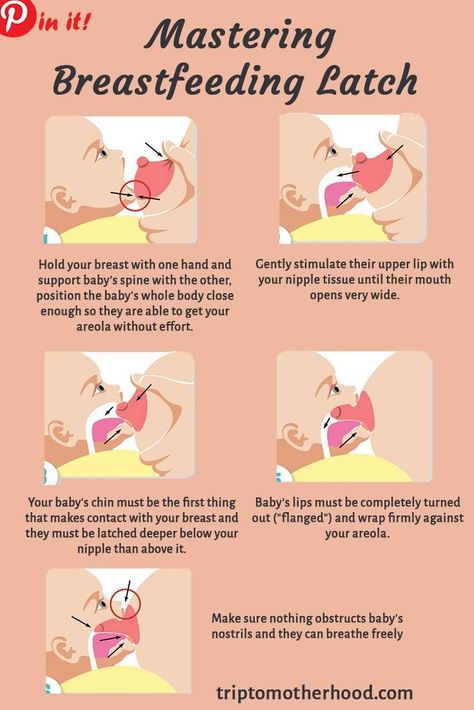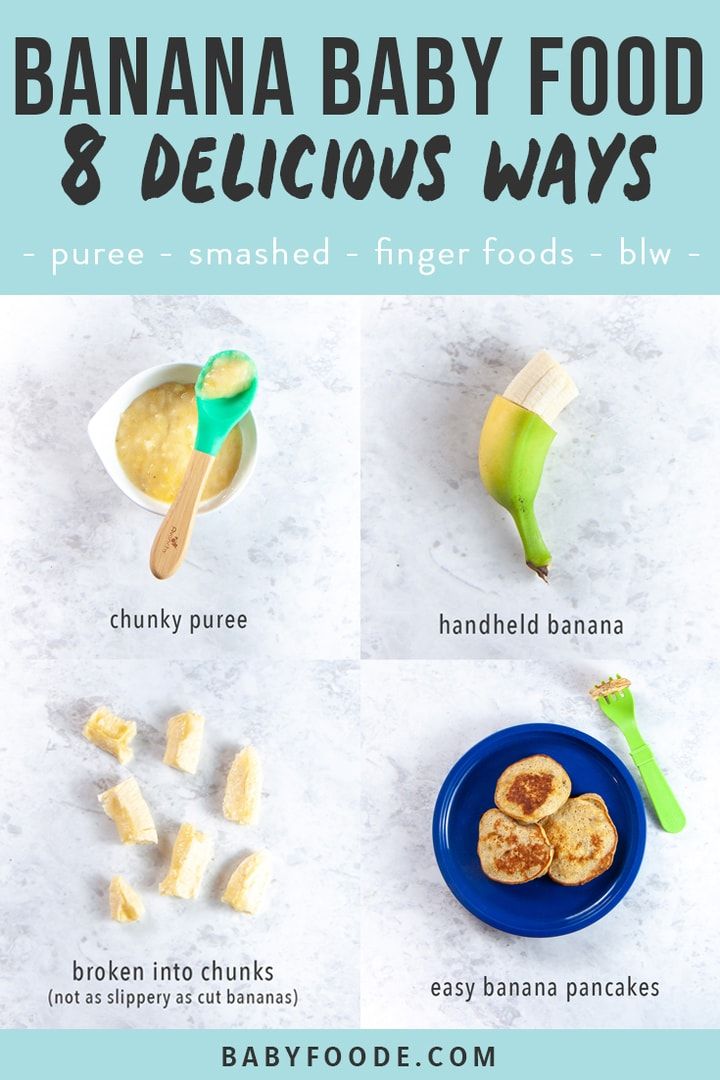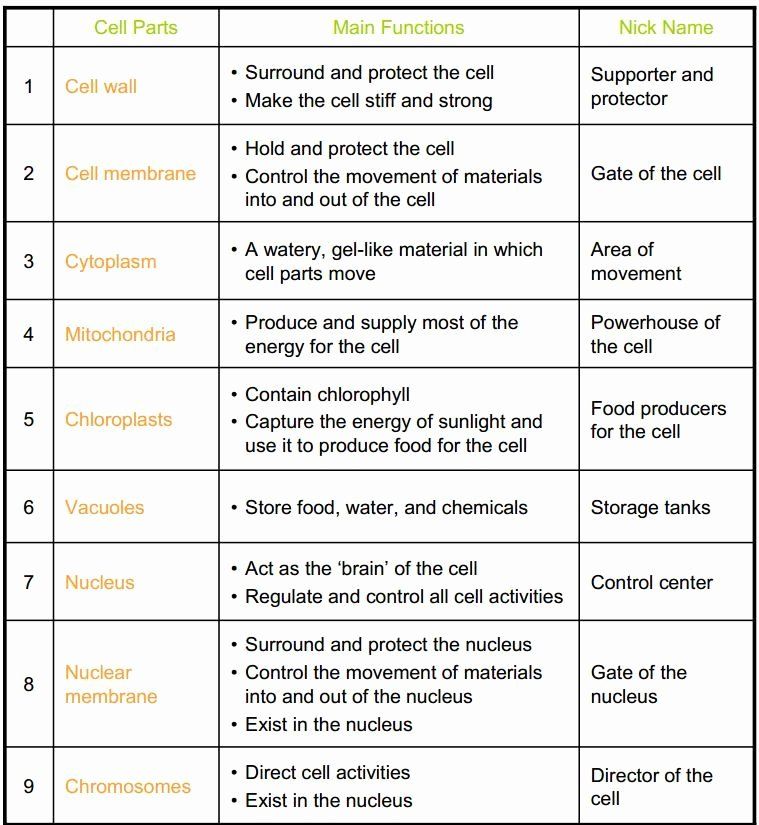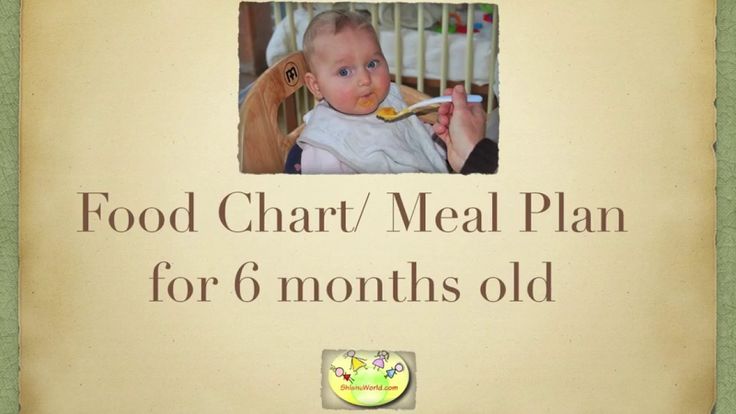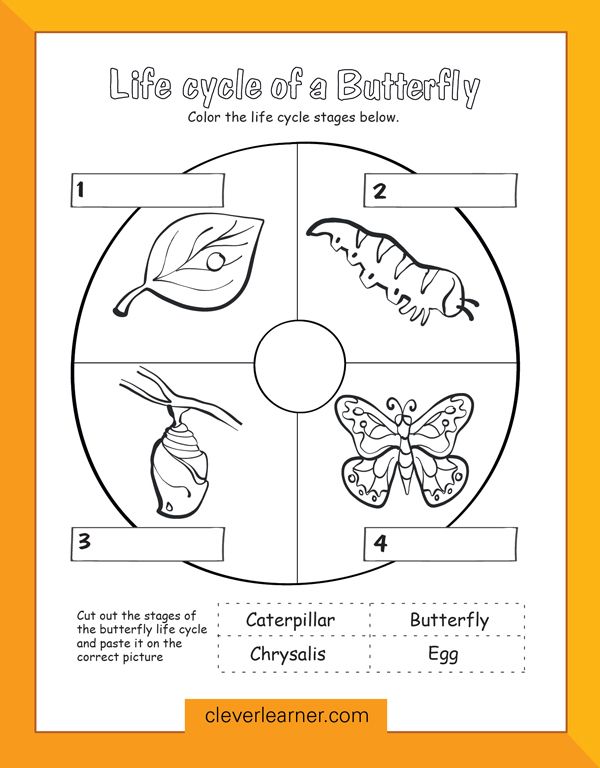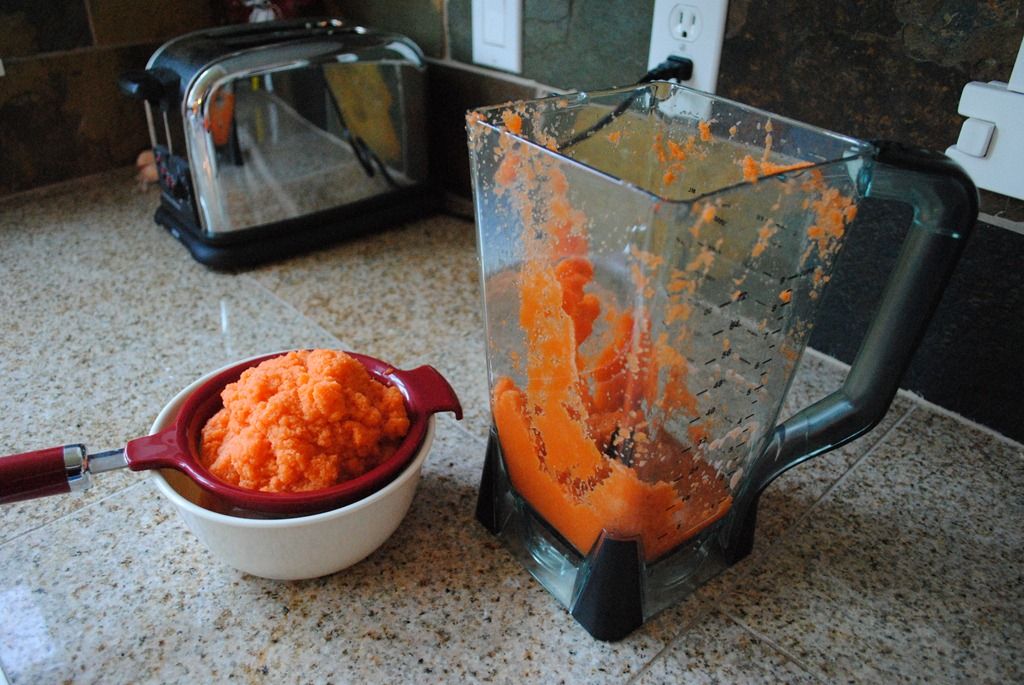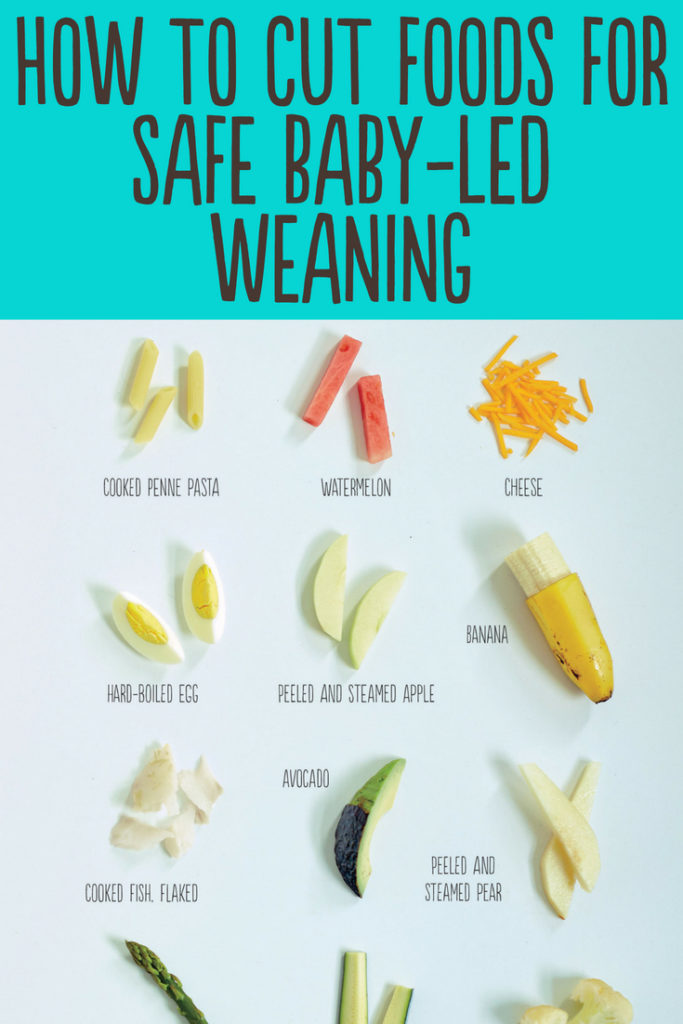Baby gas breastfeeding foods avoid
What You Can Do To Help Your Gassy Breastfed Baby
What are some common culprits behind your baby's gassiness? Learn the signs, foods that may cause gassiness in your baby, and how to soothe and relieve his or her symptoms.
Share this content
As a new parent, it can be stressful and upsetting to see and hear your baby cry. That’s especially true if you've checked off all the usual suspects— dirty diaper, empty belly, discomfort, or over-tiredness —and you still can’t seem to soothe your little one.
Gas is something that many newborns experience, and it can be painful for them! It isn't always the first thing that parents remember to consider, since it's not something easily visible.
Signs Your Breastfed Baby is Gassy
If you suspect excess gas could be the culprit causing your baby’s fussiness, there are several signs that may indicate you are correct:
- Burping. It’s possible your baby has swallowed too much air while nursing or crying for a long period.
- Spitting up. While spitting up is perfectly normal, gas that’s trapped in the stomach can push breast milk back up and cause your baby to spit up.
- Bloated tummy. This could be a sign that gas has built up in your baby’s stomach.
- Flatulence. Every baby toots, but if they’re doing so excessively, it could mean they have excess gas.
- Arched back, legs drawn toward the tummy. The discomfort from gas pains will make a baby try to adjust to alleviate it.
Gassy Baby Causes
Gas in a breastfed baby is not uncommon and can be attributed to several factors:
- Gulping while feeding. If your milk let-down reflex is strong, your baby may gulp your milk to keep up and swallow extra air in the process. If that’s the case, your little one may do better nursing in a more upright position, so he or she has better control over milk intake and flow.
- Introducing a bottle.
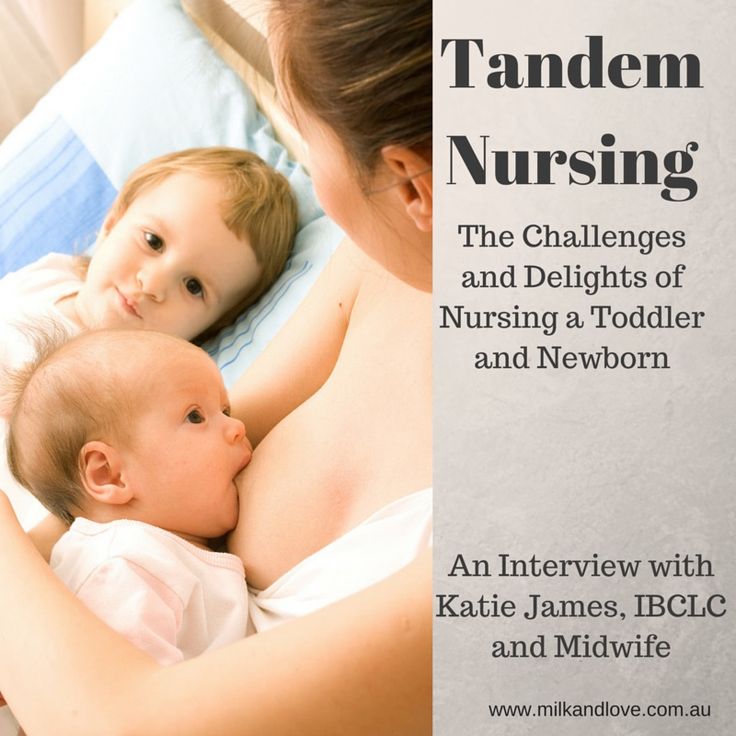 If your baby is used to the breast and you begin feeding with a bottle, it may take some getting used to at first. As a result, he or she may swallow too much air while eating.
If your baby is used to the breast and you begin feeding with a bottle, it may take some getting used to at first. As a result, he or she may swallow too much air while eating. - Constipation. When your baby is constipated, they may have gas trapped in their tummies that they’re having a hard time releasing.
- Crying. If your baby has been crying for a long time, they may be gulping in air in the process.
- Mom’s diet. Food that you’ve eaten can make your baby gassy as well. Certain foods such as dairy, soy or wheat may contribute to gassiness in your little one. Keep a food journal of what you eat to see if you can pinpoint the culprit in your diet.
Foods That Make Breastfed Babies Gassy
Though a baby’s gas is not commonly linked to mom’s diet, there are certain gas-inducing foods that could give both a breastfeeding mom and her baby gas. These include:
- Fiber. Foods like bran, beans, and whole grains.
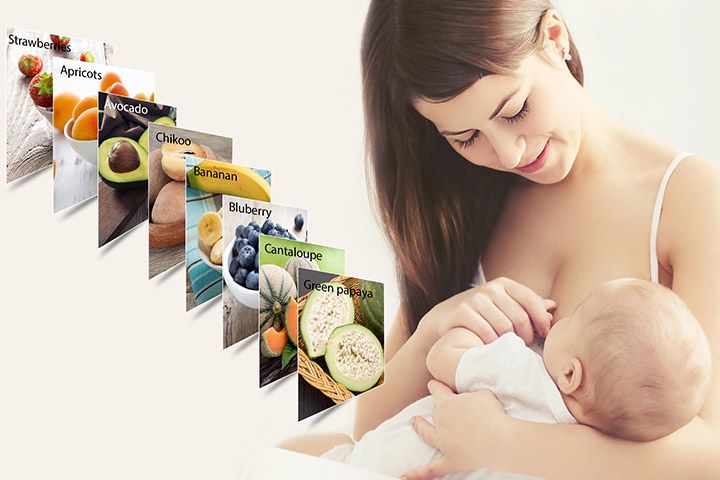
- Fruit. Citrus fruits, prunes, plums, peaches, or apricots.
- Vegetables. Broccoli, cabbage, and Brussel sprouts.
- Garlic. Garlic-seasoned foods like pasta dishes or garlic bread.
- Dairy. Yogurt, ice cream, or milk products.
- Carbonated beverages. If they make you burp, they could make your baby gassy too.
It’s not necessary to give up all your favorite foods when pregnant and/or breastfeeding. Health experts recommend only making dietary changes if you see a direct connection between something you’ve eaten and your baby's gassiness.
Additionally, if you’re still breastfeeding after your little one begins solids or finger foods, it’s easier to detect what food might be the culprit and then eliminate it.
Relieving Gassy Babies
There are several effective ways to help relieve your baby’s gas pains and soothe them. Try a combination of these to find what works best for your little one.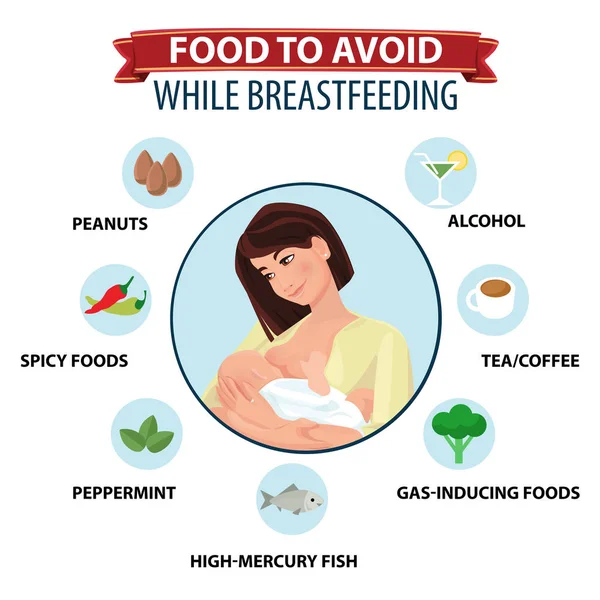
- Burp twice. Try to coax two burps out of your baby instead of just one.
- Sit upright. Hold your baby in an upright position while burping. This makes it easier to expel gas.
- Tummy time. Laying your baby on their tummy will help to push gas out.
- Bicycle exercises. Put your baby on his or her back and move their legs in a pedaling motion, similar to cycling on a bike. This helps with constipation as well.
- Massage the tummy. A gentle massage can help move gas out.
- Adjust baby’s latch. Make sure your baby is latching correctly to avoid swallowing too much air.
Don't worry, mama - Gas is typically a normal occurrence and most babies experience gassiness from time to time! With some minor adjustments, you can soothe your little one and help them get through the discomfort of gas.
Foods to Eat or Avoid When Breastfeeding
Reviewed by Poonam Sachdev on June 26, 2022
It’s a good source of protein. Some, like salmon and tuna, also give you omega-3s, which your body needs. But what about mercury and other contaminants? You can have cooked seafood twice per week. Each serving can be up to 6 ounces, which is the size of two decks of cards. Choose types that are lower in mercury, such as salmon, tilapia, and trout. Avoid shark, swordfish, king mackerel, and tilefish, which have high levels of mercury.
Some, like salmon and tuna, also give you omega-3s, which your body needs. But what about mercury and other contaminants? You can have cooked seafood twice per week. Each serving can be up to 6 ounces, which is the size of two decks of cards. Choose types that are lower in mercury, such as salmon, tilapia, and trout. Avoid shark, swordfish, king mackerel, and tilefish, which have high levels of mercury.
Love hot sauce? Most babies can handle it and other fiery foods in your diet. But if your little one is gassy or colicky and gets diarrhea every time you sprinkle red pepper flakes over your pizza, cut back on the heat for a few weeks to see if that helps.
They’re full of flavor. But some herbs may affect how much milk your body makes. For instance, eating a lot of parsley could curb lactation. And too much sage and peppermint may cut your milk supply. For some nursing moms, even peppermint-flavored toothpaste and candies are a problem.
It’s rarely a problem. But see how your baby does.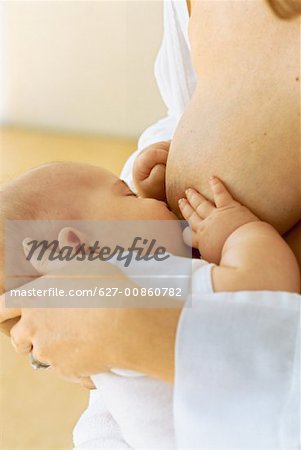 Tell your pediatrician if your tot gets skin problems, has trouble breathing after breastfeeding, or has other symptoms.
Tell your pediatrician if your tot gets skin problems, has trouble breathing after breastfeeding, or has other symptoms.
As refreshing as your cup of chai or Earl Grey may be, it has some downsides. It’s got caffeine, which can affect your sleep – and your baby’s. It may also make it harder for your body to absorb iron, which you need for energy. If you drink hot or iced tea, try not to sip it when you eat foods that are rich in iron, such as lean meat; dark, leafy greens; and fortified breakfast cereals.
What if you aren’t allergic, and you want to prevent your baby from developing an allergy? Sorry, but there’s no proof that you can do that by skipping specific foods. Cutting certain foods out of your diet may make the skin condition eczema less likely for your little one. Ask your doctor or pediatrician for advice.
Breastfeeding can make you thirstier than you usually are. If that’s the case, drink a glass of water every time you breastfeed. But no matter how parched you feel, don’t go for regular sodas or fruit drinks, which give you calories without nutrition.
It's best for your baby if you don't have any booze at all. But if you do choose to drink, don’t breastfeed until the alcohol has completely cleared your milk. For 12 ounces of beer, 5 ounces of wine, or 1.5 ounces of liquor, wait at least 3 hours. Pumping doesn’t speed that up.
Common culprits include beans, broccoli, cabbage, and Brussels sprouts. Bloating, burping, and passing gas are normal. But if your baby is gassy or has colic, avoid these foods for a few weeks to see whether they relieve the symptoms.
Both have caffeine. You’ll also find it in energy drinks and cola. If you’re lost without your latte, limit yourself to 2-3 cups per day of the brewed kind. Or you could switch to decaf.
IMAGES PROVIDED BY:
1) Getty
2) Getty
3) Getty
4) Getty
5) Getty
6) Getty, iStock
7) Getty
8) Getty
9) Getty
10) Getty
SOURCES:
Mayo Clinic.
The Children's Hospital of Philadelphia.
La Leche League.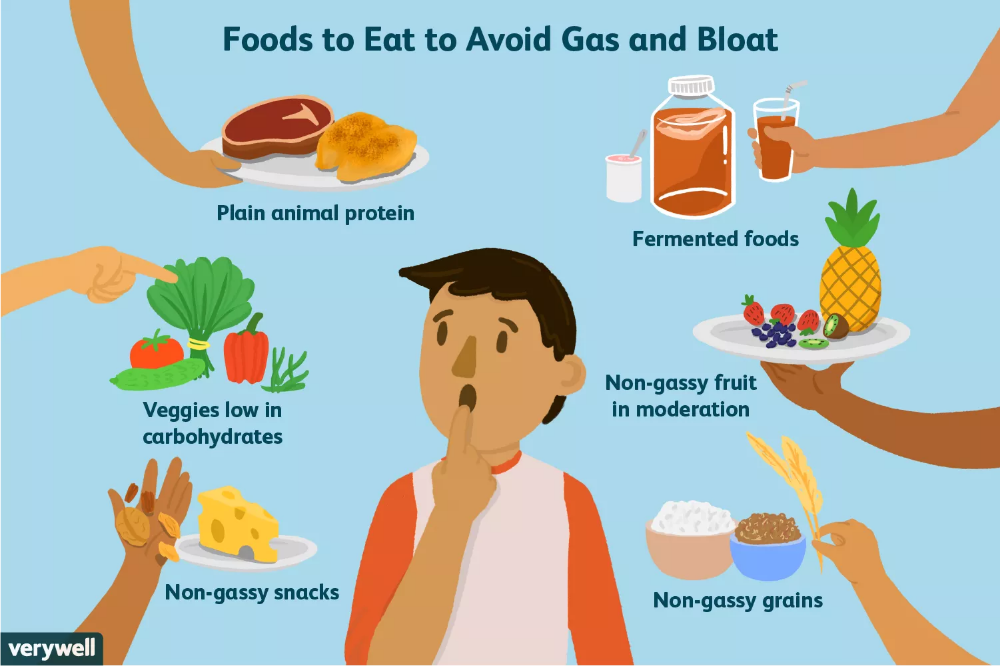
The American Academy of Pediatrics.
U.S. Department of Agriculture.
© 2022 WebMD, LLC. All rights reserved. View privacy policy and trust info
Intestinal colic in newborns and children of the first year of life
Often parents do not know how to help their baby with sudden bouts of colic that periodically occur during or after feeding. How to alleviate the condition of the crumbs tells the EMC pediatrician, candidate of medical sciences, Maria Shilko.
What is colic in infants?
Colic is an intestinal spasm, usually caused by a violation of its motor function and increased gas formation. To characterize this condition in babies, pediatricians use the "rule of three": colic lasts a total of about 3 hours a day, occurs at the 3rd week of life and lasts about 3 months. Parents should understand that colic in infants is not a disease, this condition is temporary, passing by the age of four months.
The exact cause of infantile colic has not yet been established.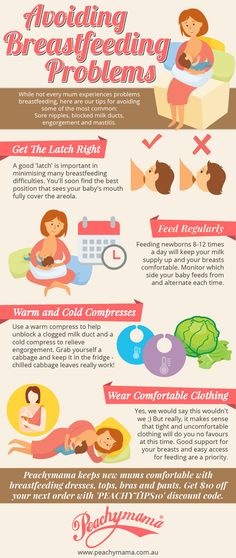 Experts associate the phenomena of digestive discomfort in newborns with immaturity and reduced activity of enzymes that help digest and assimilate food.
Experts associate the phenomena of digestive discomfort in newborns with immaturity and reduced activity of enzymes that help digest and assimilate food.
How do you know if your baby has colic?
The baby cries and screams a lot, moves his legs restlessly, pulls them up to his stomach, during an attack the baby's face turns red, the stomach may be swollen due to increased gas formation. Crying occurs most often in the evening, but can be observed at any time of the day. Between seizures, the child is calm.
How to help the baby?
If the mother is breastfeeding:
-
Limit milk and dairy products in your diet. It is enough not to use them for 8-10 days for the mother to notice an improvement in the child's condition.
-
Try to avoid foods that cause flatulence and increase fermentation in the intestines: beans, peas, cabbage, radish, grapes.
-
Do not abuse drinks containing caffeine (tea, coffee, coca-cola).

-
Make sure you are putting your baby on the breast correctly. Make sure that the baby captures the entire areola of the nipple and does not swallow air.
-
Let the baby empty one breast completely. If a mother changes breasts too often during feeding, then the baby receives a lot of "forward" milk, which is low in fat and rich in milk sugar - lactose. Relatively low-fat milk quickly leaves the baby's stomach and a large amount of lactose, entering the intestines, causes increased gas formation, bloating and abdominal pain.
If the child is bottle-fed:
-
Consult your pediatrician. He can choose a mixture that is easier to digest and does not cause discomfort after feeding.
-
Use special bottles and anti-colic nipples that allow you to adjust the flow rate of milk formula, the baby will not "choke" and swallow air.
-
Try to feed your baby in a calm environment.
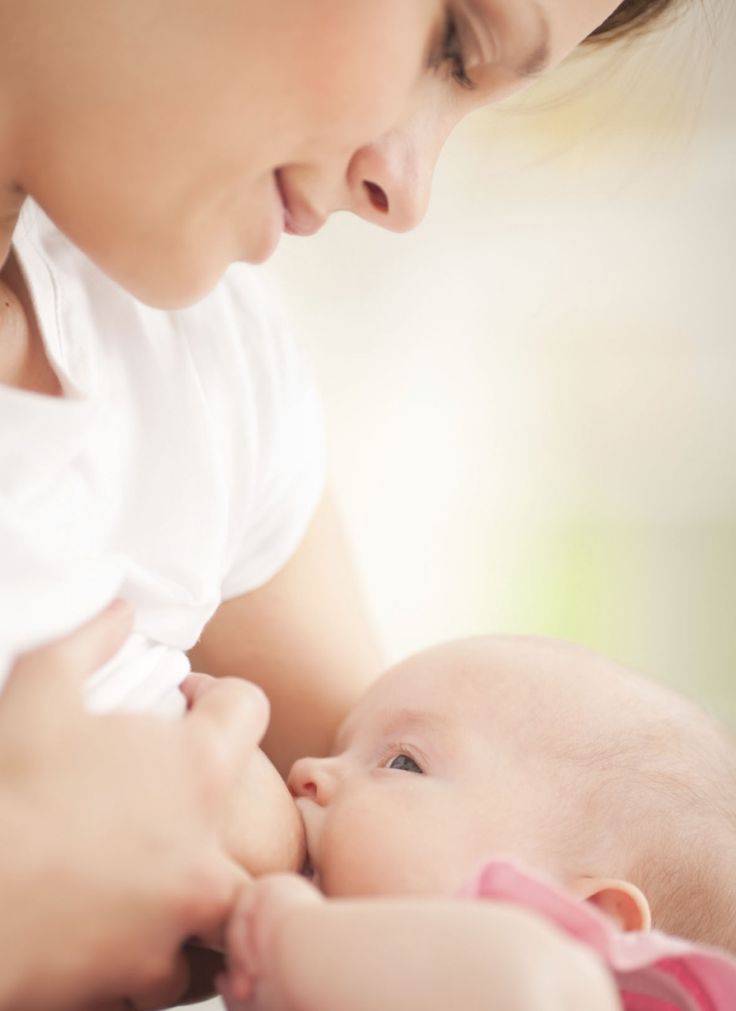
-
When diluting milk mixtures, observe the dosage exactly.
Be sure to hold your baby in an upright position after feeding to let the "excess air" out.
If the baby starts to scream, take him in your arms, press him to you with your tummy, stroke his back. From the changed position and increasing intra-abdominal pressure, the baby will release gases, and the pain will be released.
To relieve colic, massage the abdomen clockwise with light pressure, heat (just ironed diaper on the stomach), gas tube.
A walk in a stroller in the fresh air, quiet pleasant music will have a calming effect.
Prevention of colic in the newborn
For the prevention of colic, special children's teas are traditionally used, containing medicinal herbs (fennel, chamomile), plant-based preparation Plantex, which have a beneficial effect on the gastrointestinal tract, improve digestion, and prevent gas accumulation.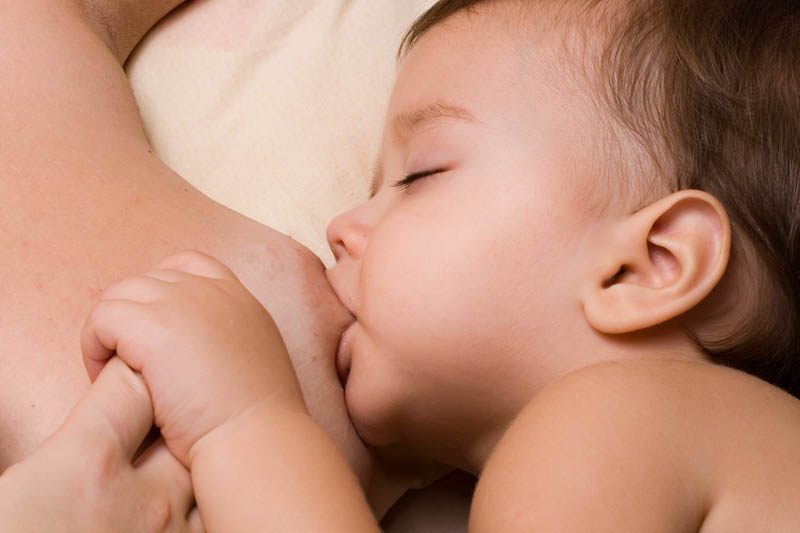
It is important for parents to remember that functional intestinal colic is not a disease and occurs in 20% of healthy children. However, it is possible to talk about intestinal colic only if in all other respects the baby is healthy, develops correctly and gains weight well.
Consult your pediatrician. The doctor will examine the child, determine the exact cause of the baby's anxiety and give the necessary recommendations.
Nutrition rules for breastfeeding.
Table of contents
- What should be remembered during breastfeeding?
- What is contraindicated for women during breastfeeding?
- What foods should be avoided during breastfeeding?
- Featured Products
Disclaimer
Please note that all information posted on the site Prowellness is provided for informational purposes only and is not a personal program, a direct recommendation for action, or medical advice. Do not use these materials for diagnosis, treatment, or any medical procedure. Consult your physician before using any technique or using any product. This site is not a specialized medical portal and does not replace the professional advice of a specialist. The Site Owner is not liable to any party who has suffered indirect or direct damage as a result of misuse of materials posted on this resource.
Do not use these materials for diagnosis, treatment, or any medical procedure. Consult your physician before using any technique or using any product. This site is not a specialized medical portal and does not replace the professional advice of a specialist. The Site Owner is not liable to any party who has suffered indirect or direct damage as a result of misuse of materials posted on this resource.
Rules for breastfeeding.
During breastfeeding, the mother is responsible not only for herself, but also for the child, because her diet significantly affects the quality of milk. Taking into account the condition of the mother, recommendations are made about her nutrition during the breastfeeding period.
What should you remember about breastfeeding?
Many young mothers forget about the obvious things:
- Pregnancy and childbirth is a very serious test for the body. After them, the body needs restoration and replenishment of the necessary substances.
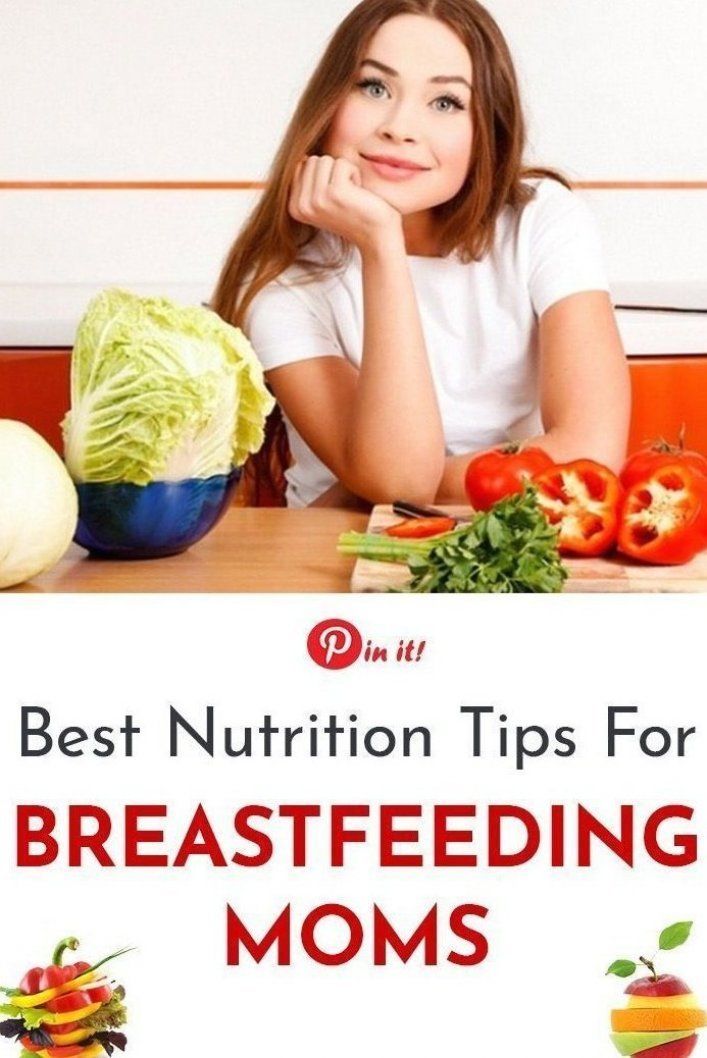 It is impossible to diet while breastfeeding and limit yourself to food.
It is impossible to diet while breastfeeding and limit yourself to food. - Foods that a mother eats should ensure the health of her and her baby, so it is important to focus on their quality.
- After childbirth, many women suffer from gastrointestinal dysfunction, so the food that enters the mother's body should be easily digested.
For young mothers, we recommend the Siberian Wellness complex - MAMA Box .
What is contraindicated for women during breastfeeding?
First of all, a woman on breastfeeding is contraindicated for harmful food addictions and habits:
- Drinking alcoholic beverages. The decay products of alcoholic beverages enter the mother's milk, poisoning the child's body and loading his liver. They are slowly excreted from the body of the baby, can cause severe intoxication.
- Smoking. Nicotine almost immediately penetrates into mother's milk, has a toxic effect on the child.
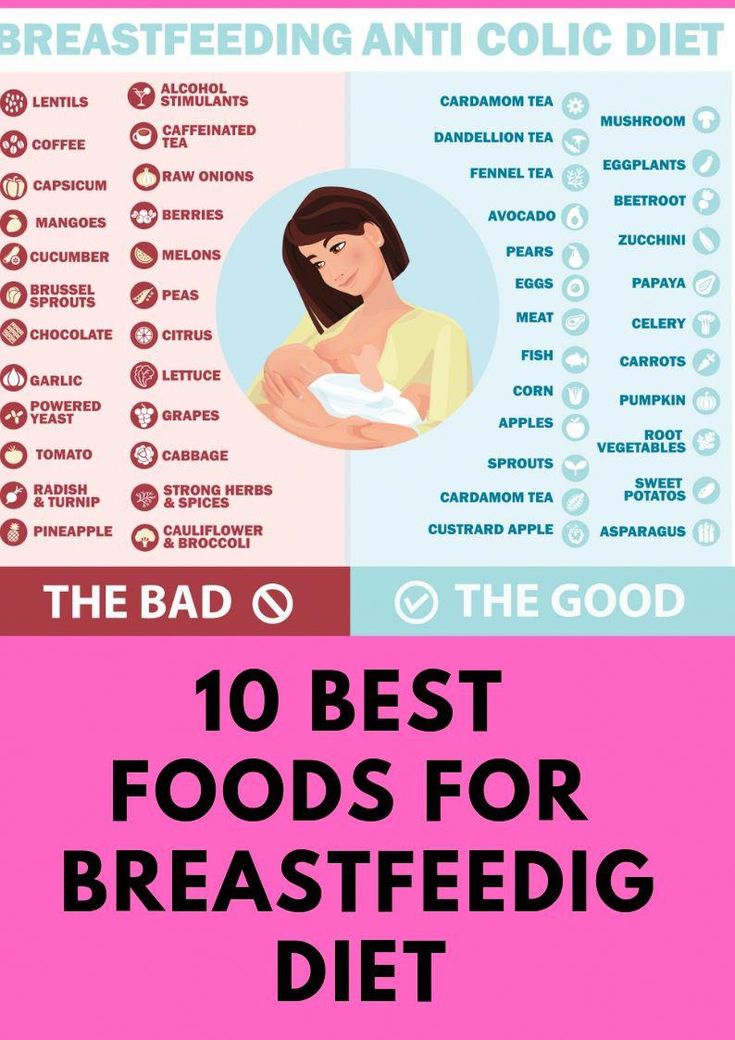
- Poor hygiene. If a nursing mother neglects the basic rules of hygiene, then sweat creates a comfortable environment for the development of pathogenic bacteria. A breastfeeding baby may develop sores, stomatitis, and other disorders in the mouth. This will make it difficult for him to feed.
- Deodorants, perfumes, other strong-smelling substances. Their intense smell can provoke the baby to refuse the breast.
- Stress, anxiety, increased nervousness. Any nervous shocks lead a nursing woman to the fact that her lactation worsens. Being in a situation of constant nervous stress leads to the fact that the mother’s milk completely disappears.
What foods should be avoided during breastfeeding?
List of prohibited products for HB:
- Carbonated soft drinks. Sugar, sweeteners, dyes and a large amount of carbon dioxide will cause colic and diathesis in the baby.
- Fatty meat, any kind of fat. Such food is considered heavy due to the large amount of fatty acids.
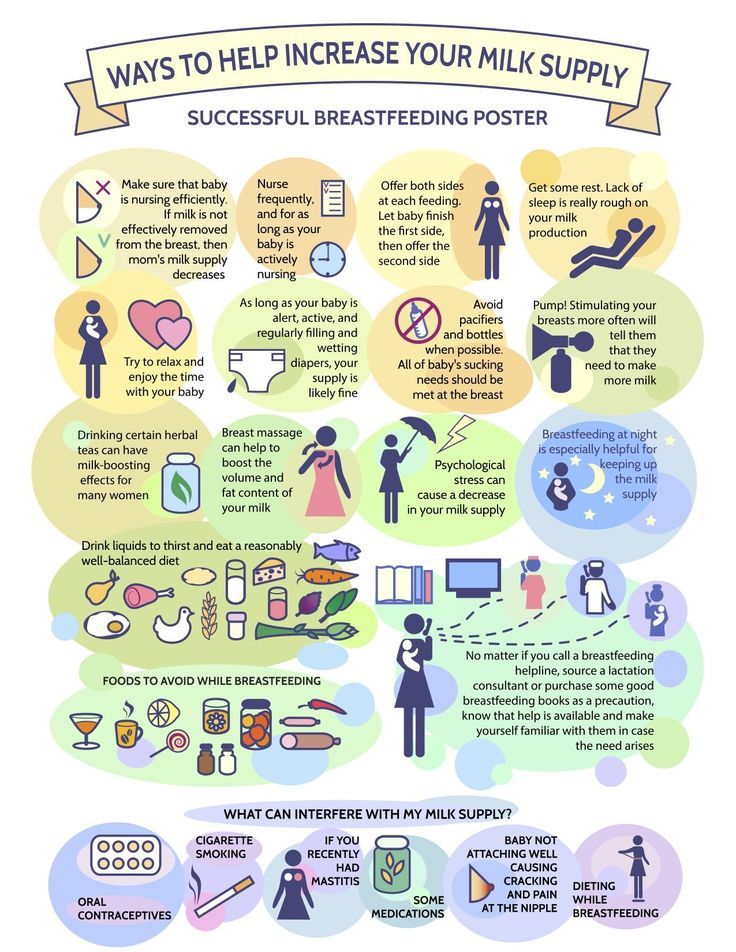 It will be very difficult for a child to digest it, stomach upsets are possible in the first months of life.
It will be very difficult for a child to digest it, stomach upsets are possible in the first months of life. - Smoked meat, fish, sausage. For smoking, smoke and many harmful substances are used that will not benefit the baby.
- Fried foods. Under the influence of high temperatures during frying in oil, carcinogens are produced. Also in such products most of the nutrients are destroyed. It is worth giving preference to steaming or boiling.
- Fast food. It contains a lot of carbohydrates, fats, artificial additives and flavors.
- Mushrooms. This is a very heavy food, especially for a child. Doctors advise not to introduce mushrooms into the baby's diet until the age of 5.
- Citrus. They can provoke severe allergies in the crumbs.
- Seafood. Seafood is very useful, but causes allergies, so at first it is better to refuse them.
- Red vegetables and fruits. They can provoke dry skin, itching, peeling in the baby.
- Condiments, including onions and garlic.
 They can cause allergies. The baby will most likely refuse milk, as it will smell specific.
They can cause allergies. The baby will most likely refuse milk, as it will smell specific.
Especially for the smallest Siberian Wellness has developed a line of care cosmetics Vitamama BABY. Gentle hypoallergenic baby soap-foam based on chamomile and pine water gently cleanses your baby's skin, keeping it soft and moisturized. Chamomile and lavender oils prevent dryness and irritation of the skin.
And the Baby cream based on chamomile water with panthenol, developed in the same series, gently moisturizes your baby's skin. Essential oil of blue chamomile relieves irritation, alleviates the condition with urticaria, diathesis and insect bites, and arnica flower extract helps to resolve bruises and heal scratches
Attention! Chocolate is an allergenic product, you will also have to forget about it for the period of breastfeeding.
Mothers who feed their baby with breast milk need to be careful when choosing products, carefully monitor the condition of the child, and adjust the diet in time.